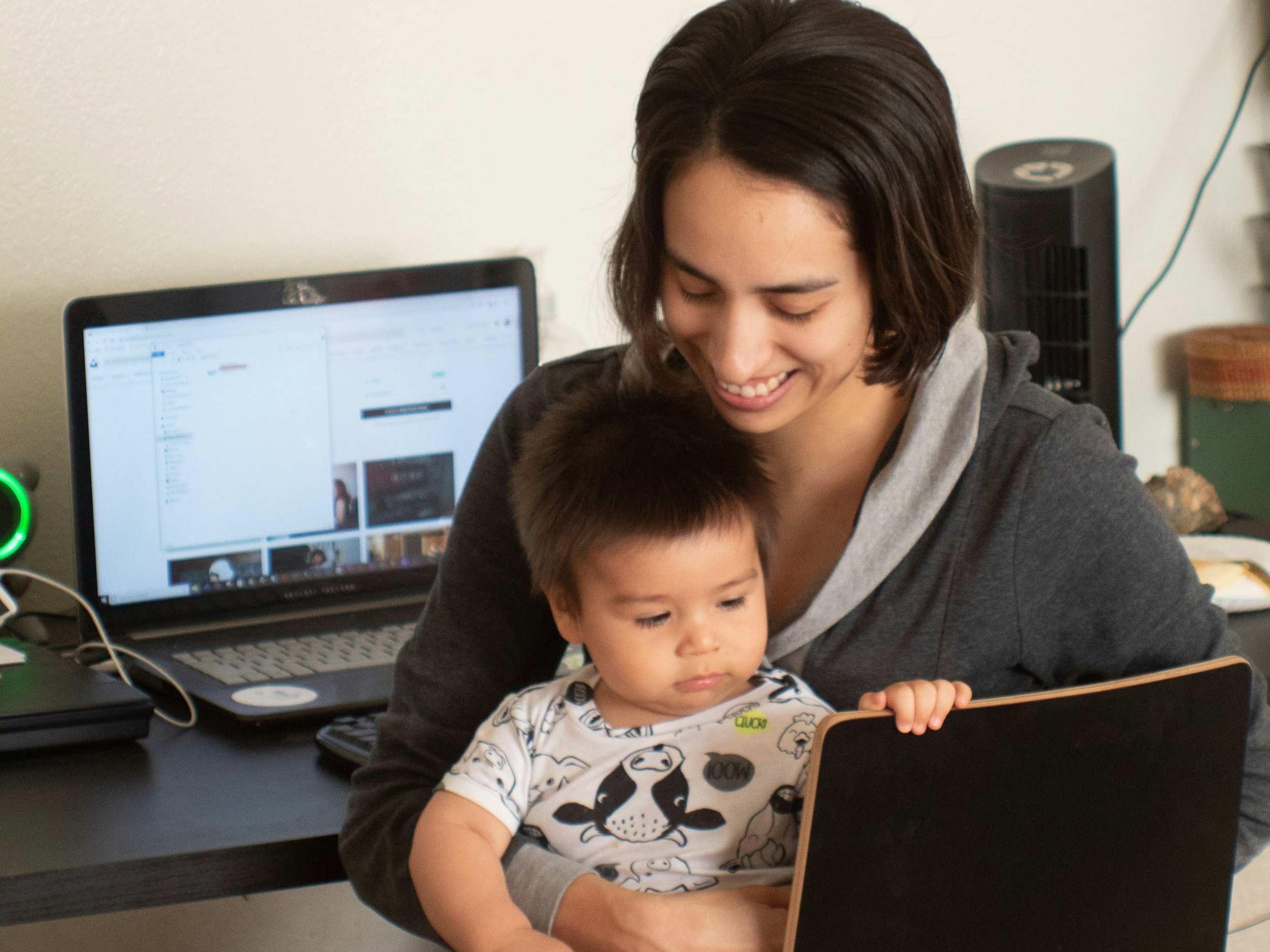How to transition back to work after maternity leave
Photo credit: Brian Wangenheim
Going back to work after having a baby is not an easy transition in any circumstances. As a new parent, you may love your job but still feel overwhelmed and anxious about your return. To set you off on a good start, Lori Mihalich-Levin and Anya Smirnova, two working mums behind the Mindful Return UK maternity leave programme, share the four steps they recommend you take to put your return on a much more thoughtful, mindful and calm trajectory.
First of all, it is quite normal to be not quite sure how it is going to work out. These feelings can be exacerbated if there are changes within your organisation while you are on leave, financial pressures are leading you to return earlier than you’d wanted to, or you are taking more time off work than you had planned to take care of your own health needs.
Here are four steps we, as two working mums, recommend:
1. Spend time and energy getting your head in the right place
Acknowledge your thoughts and feelings about parenthood and career. Take stock of your strengths – you’ve got through tough patches before, and you made it through. Explore what fills you up. Journal about it. Play around with a daily gratitude practice to see if you notice a difference in how you view your days. Try meditating for 5 minutes at a time using an app like Headspace or Insight Timer.
Once you figure out what works for you, start a practice of micro self-care that you commit to doing every day. Micro, because really, after baby arrives, it’s hard to get more than a few minutes to yourself…but even those few minutes make a huge difference.
Here’s Lori on micro-practice: “I use my shower every morning as a time to recharge, and I use the acronym “ISS” (like “is”, a form of “to be”) to remind myself to set an Intention, Stretch and Savour the wonderful hot water, and being alone for a few minutes.”
Here’s Anya’s: “Each evening, I write down three good things that happened that day, and I’m always surprised how this focus on finding the good changes my perspective on that day and on my life.”
2. Learn the logistics
Think about what good work-life balance might look like for you. What are your new non-negotiables, and what boundaries need to be put in place? Explore the logistics for the dream to come true.
Talk to your partner and support network about how you’ll juggle childcare, sick days, snow days and the inevitable unexpected. Explore phased-in return and flexible work options. Pace your childcare option exploration throughout your leave. If you are breastfeeding, read up on your rights on breastfeeding on return to work, and block off feeding/expressing time on your work calendar.
With your line manager, create a re-integration plan at work and use this time as an opportunity to discuss your career goals and close any perception gaps. Use your keep-in-touch days.
3. Turn your leave into a leadership opportunity
You’re probably saying “What?! Leadership? You can’t be serious!” But indeed, we mean it. Think about how you can view your leave experience other than as a pause in your career.
Can your leave present an opportunity to grow your team and evolve your own role? Are there ways to take credit during your annual performance review for a well-planned leave and return? What skills did you gain as a new parent (say, amazing problem-solving, prioritising, rolling with the unexpected) that are valuable in your workplace? How can you communicate these newfound superpowers to your colleagues and supervisors? What if you actually use your position to be a role model for balance?
You can still have a successful career and a powerful impact on the working world, even if your leadership might look different from how you used to imagine it.
4. Build your community
It can be easy to forget that you’re not alone. Have conversations with your partner about how you want to co-parent, and maintain that discussion as you both navigate this transition.
Though there are days when it may not feel like it, your parents and in-laws are probably on your team. They care about you and want your little one to thrive in the world. We recommend to assume positive intent, not to stew, and to ask for specific help. And consider that practising those courageous conversations is a good work skill too!
Look into the joys of intentionally sharing with others this remarkable experience of being a mum. In psychology there’s a concept called “capitalisation” that we absolutely love. In the theory of capitalisation, communicating positive life events with responsive significant others (e.g. partner, family, friend) is associated with increased positive effect and well-being, above and beyond the impact of the positive event itself. In other words, if something good happens to you, everybody gets more benefit from that something good if you actually talk about it with your genuine cheerleaders.
What working parents’ groups and support are available in your workplace? Think about people who are supporters and stakeholders in your career, use your return as an opportunity to reconnect with them.
Yes, parenthood comes with unknowns and overwhelm that can make going back to work after leave seem terrifying. But there are also ways to plan a thoughtful and mindful maternity leave and return. And there are legions of people out there who are eager to support you through it.
Visit Mindful Return UK maternity leave programme’s website here

